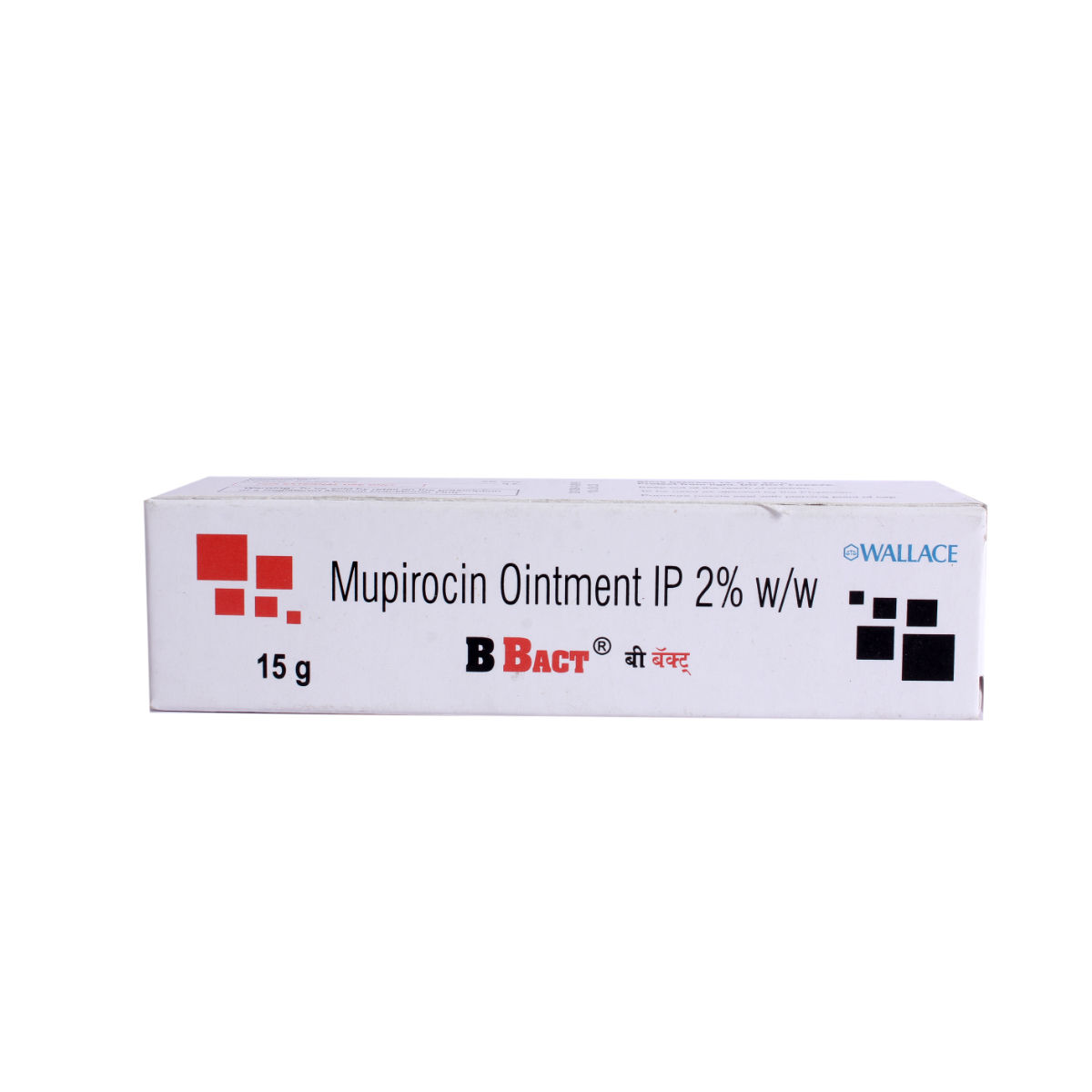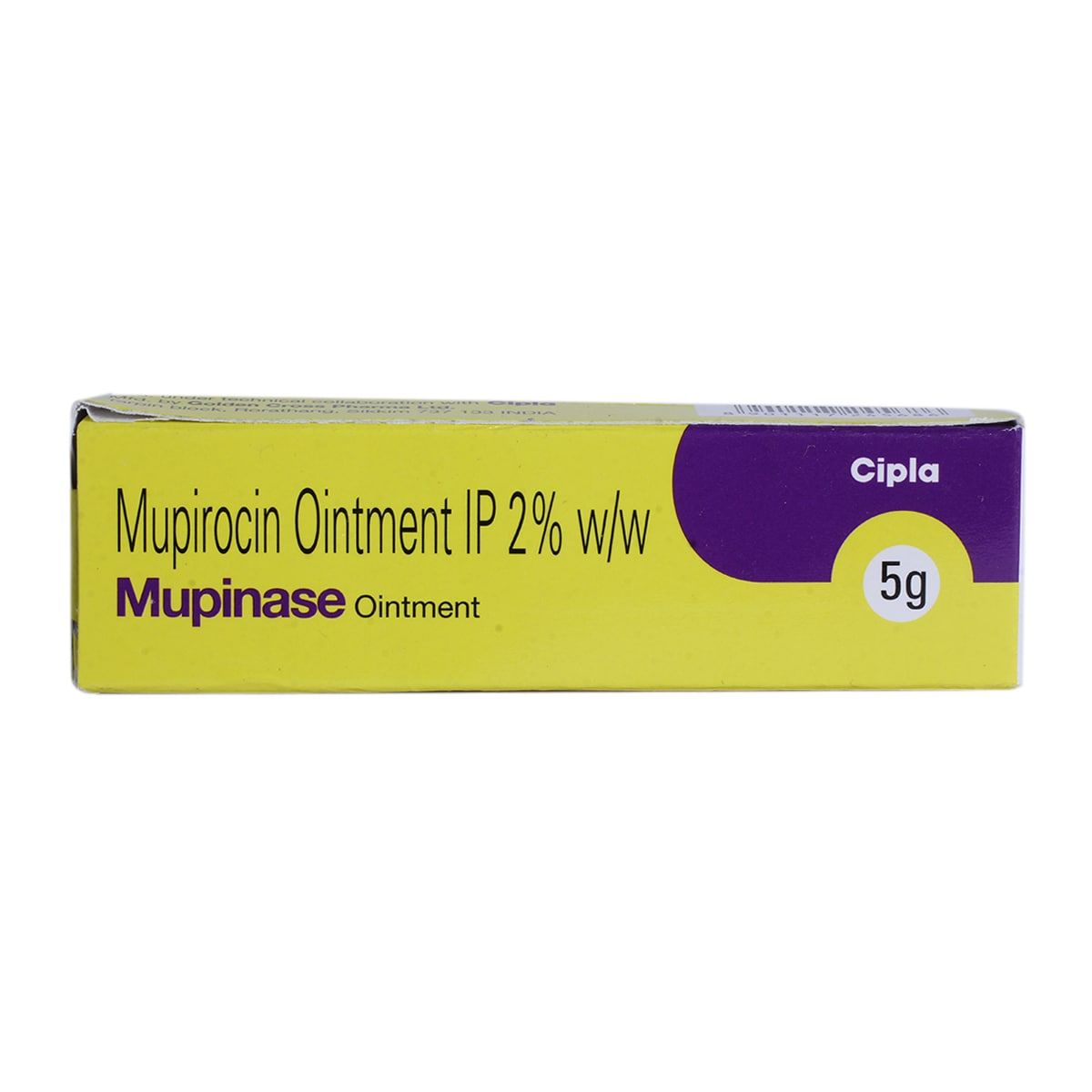MU-IN Ointment
MU-IN Ointment is used to treat skin infection impetigo caused by bacteria namely, Staphylococcus aureus and Streptococcus pyogenes. It contains Mupirocin, which works by stopping the production of necessary proteins needed for bacterial survival. It is also active against Gram-negative organisms such as Escherichia coli and Haemophilus influenza. It is not effective against fungal or viral infections and should not be applied on burnt skin areas and open-cut wounds. It may cause side effects such as burning, itching, pain or stinging.
₹157.5*
MRP ₹175
10% off
₹148.75*
MRP ₹175
15% CB
₹26.25 cashback(15%)
Free Delivery
With Circle membership
(Inclusive of all Taxes)
This offer price is valid on orders above ₹800. Apply coupon PHARMA10/PHARMA18 (excluding restricted items)
Know Your Delivery Time
Provide Delivery Location

Available Offers
 Prescription drug
Prescription drugWhats That

Secure Payment

India's Most Trusted Pharmacy

Genuine Products
Composition :
Manufacturer/Marketer :
Consume Type :
Return Policy :
About MU-IN Ointment
MU-IN Ointment is a novel topical antibiotic used to treat skin infection 'impetigo' caused by bacteria, namely Staphylococcus aureus and Streptococcus pyogenes. A bacterial infection is a condition in which bacteria grow in the body and cause infection. It can target any body part and multiple very quickly.
MU-IN Ointment works by stopping the production of proteins needed for bacterial surveillance. It is also active against Gram-negative organisms such as Escherichia coli and Haemophilus influenza. However, it is not effective against fungal or viral infections and should not be applied to burnt skin areas and open-cut wounds.
MU-IN Ointment should only be used if your doctor advises you to do so. It is not recommended for children below 2 months of age. MU-IN Ointment should be used for skin only, and if it accidentally gets into your eye, mouth, or nose, rinse with water. MU-IN Ointment should be applied to the affected area with a piece of clean cotton wool or gauze swab. MU-IN Ointment should not be applied more than the recommended dose, to avoid unpleasant side effects. Also, the course should be completed even if you feel better, as it is an antibiotic. Some common side effects of MU-IN Ointment are burning, itching, redness, stinging and dryness on your skin in the place where MU-IN Ointment is applied. Sensitive allergic reactions (skin hypersensitivity reactions) like rashes, itching, swelling, and shortness of breath can occur in rare cases. Please consult your doctor if an allergic reaction becomes severe.
Tell your doctor if you are known to be allergic to MU-IN Ointment or any other medicines. It is not known whether MU-IN Ointment harms the baby or passes into breast milk. It is better to contact a doctor before using MU-IN Ointment during pregnancy and while breastfeeding.
Uses of MU-IN Ointment
Directions for Use
Medicinal Benefits
MU-IN Ointment is widely used to treat skin infections caused by specific bacteria. This medicine works by killing bacteria or preventing their growth.
How MU-IN Ointment Works
Storage
Side Effects of MU-IN Ointment
- Burning
- Itching
- Redness
- Stinging
- Dryness
What if I have taken an overdose of MU-IN Ointment
Drug Warnings
Clostridium difficile-associated diarrhoea (CDAD) has been reported while using major topical antibacterial products. If CDAD is suspected or confirmed, the ongoing treatment of MU-IN Ointment should be discontinued. MU-IN Ointment should be stopped if irritation, severe itching, or skin rash occurs. If there is no improvement observed in 3-5 days, contact your doctor. MU-IN Ointment should be used with caution in children less than 2 months of age. Prolonged use of MU-IN Ointment may result in the overgrowth of fungi. Rinse with water in a case MU-IN Ointment accidentally enters your nose, eyes, or mouth. A separate product of nasal is available for use in the nose. MU-IN Ointment topical is for use only on the skin. Do not apply on the burnt skin or open cut wound.
Drug-Drug Interactions
Drug-Drug Interactions
Login/Sign Up
Drug-Food Interactions
Drug-Food Interactions
Login/Sign Up
Habit Forming
Therapeutic Class
MU-IN Ointment Substitute

Supercin 2% Ointment 5 gm
₹22.70per tabletT Bact Ointment 15 gm
by Others
₹19.53per tabletT Bact Ointment 5 gm
by Others
₹20.00per tabletT-Bact 2% Cream 10 gm
by Others
₹20.40per tabletMupi Ointment 5 gm
by Others
₹19.98per tablet
Product Substitutes
Alcohol
Safe if prescribed
No reported interaction with MU-IN Ointment. But, It is best to avoid alcohol while taking medication.
Pregnancy
Safe if prescribed
MU-IN Ointment is a category B pregnancy drug. Limited human data suggests that the drug does not represent any significant risk to the baby.
Breast Feeding
Safe if prescribed
Whether MU-IN Ointment enters breast milk is unknown. Before using this medication, let your doctor know if you are nursing a baby. Before nursing your child, you must thoroughly wash the area if you are applying MU-IN Ointment to the breast or nipple.
Driving
Safe if prescribed
MU-IN Ointment has no or negligible influence on the ability to drive or use machines.
Liver
Safe if prescribed
MU-IN Ointment has no reported interaction; hence, if you experience any difficulty, discuss it with your doctor.
Kidney
Safe if prescribed
MU-IN Ointment does not have any reported interaction; hence, in case you experience any difficulty, discuss it with your doctor.
Children
Safe if prescribed
MU-IN Ointment can be given safely to children provided; dose has been prescribed by a child specialist. However, MU-IN Ointment should not be used in children less than 2 months of age.
FAQs
Country of origin
Disclaimer
Author Details
We provide you with authentic, trustworthy and relevant information

























